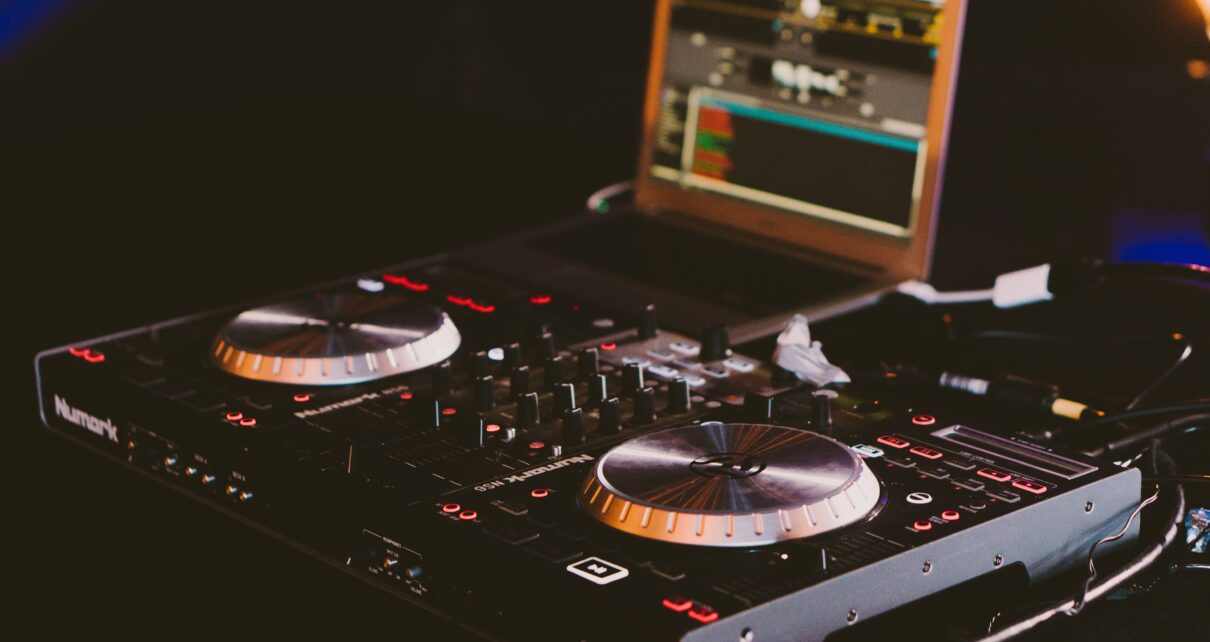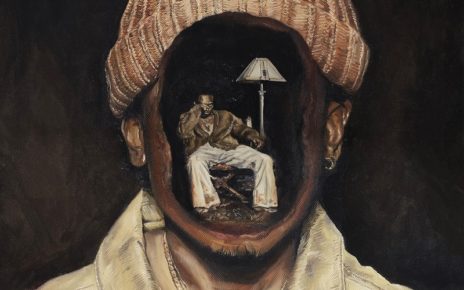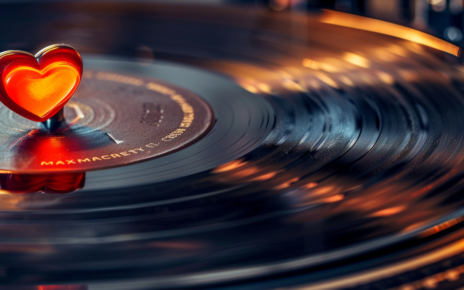Starting a career as a DJ involves more than just playing music; it’s about creating an experience, a vibe that resonates with your audience. Here’s a detailed guide on how to kickstart your DJ career.
- Understanding the Basics of DJing
DJing is an art form that blends technical skills with musical intuition. As a DJ, you’re responsible for setting the mood and energy of any event. Key skills include beat matching, phrasing, and understanding the structure of music.
Beat matching ensures smooth transitions between tracks, while phrasing and understanding the structure of music help in creating a seamless musical journey for your audience. It’s also important to develop a unique style, be it in the selection of tracks or the way you mix them. Remember, a DJ’s role is not just to play music but to curate an experience.
- Exploring Electronic Music Production
Electronic music production is a pivotal aspect of modern DJing. It involves creating music using electronic tools, computers, or synthesized sounds. Unlike traditional music, electronic music is born from the blend of technology and creativity.
To excel in this field, understanding digital audio workstations (DAWs), sound design principles, and song arrangement techniques is crucial.
The evolution of electronic music from the mid-20th century has seen it transition from analog synthesizers and tape manipulation to diverse styles and production methods.
- Mastering Sound Design in DJing
Sound design in electronic music production is akin to a secret sauce, adding unique flavors to your tracks. It involves understanding how to generate sounds that align with your creative vision, from crafting melodies to experimenting with white noise sweeps, kick drum thumps, and even alien-like bleeps.
An important aspect of sound design is the use of effects plugins. These tools add dimensions to your track, enhancing simple melody lines or transforming kick drums. Balancing clean and ‘dirty’ sounds is also crucial, creating complex textures that enrich your music.
- The Role of Music Theory and Song Structure
A good grasp of music theory is vital in electronic music production. Basic musical concepts like chord progressions and song structure are the building blocks of your tracks, providing a solid foundation. Understanding these concepts allows you to experiment effectively within your DAW.
Electronic music thrives on innovation, and the song structure can be a creative playground. Common sections like intro, verse, chorus, bridge, breakdowns, and outro each bring something unique to the table. Don’t be afraid to innovate and experiment with these elements.
- The Power of Mixing and Mastering
Mixing and mastering are crucial steps in music production, where your track truly comes to life. Mixing is about finding a balance between different elements, ensuring each instrument has its own space in the sonic spectrum.
Mastering, on the other hand, is about polishing the track to compete with commercial releases, ensuring consistent volume levels, and enhancing overall tonal balance.
Balancing levels is a skillful task, requiring keen attention to detail to ensure harmony among various elements. When done right, it gives your track a fuller feel, where each element shines without overshadowing others.
- Building a Unique Brand and Image
Developing a unique brand and image is crucial for any aspiring DJ. This involves not just your musical style but also how you present yourself visually and online. Creating a recognizable logo, a consistent aesthetic for your social media profiles, and a compelling story that defines you as an artist can make you stand out in a crowded field.
Networking and building relationships within the music industry are also essential for growth and recognition.
- Navigating the Digital Landscape: Online Promotion and Platforms
In today’s digital age, understanding and utilizing online platforms is key for DJs. Platforms like SoundCloud, Mixcloud, and Bandcamp offer opportunities to share your music and reach a wider audience.
Social media platforms like Instagram, Twitter, and TikTok are also essential for promotion and engaging with your audience. Learning the nuances of digital marketing, such as using SEO strategies and engaging content, can greatly enhance your online presence and attract bookings and opportunities.
- Live Performance Skills and Crowd Reading
The ability to perform live and read the crowd is a skill that sets great DJs apart. Understanding the energy of a room and being able to adapt your set accordingly is crucial. This includes song selection, tempo changes, and interaction with the audience.
It’s also important to be proficient with DJ equipment and technology, ensuring smooth performances. Engaging with the audience, both through music and your stage presence, can create memorable experiences and a loyal fanbase.
Conclusion
Embarking on a DJ career is an exciting journey filled with learning and experimentation. Understanding electronic music production, mastering sound design, grasping music theory, and excelling in mixing and mastering are key steps in this journey.
Remember, being a DJ is not just about playing music; it’s about creating an experience that resonates with your audience, and these tips will set you on the right path to achieving that.




